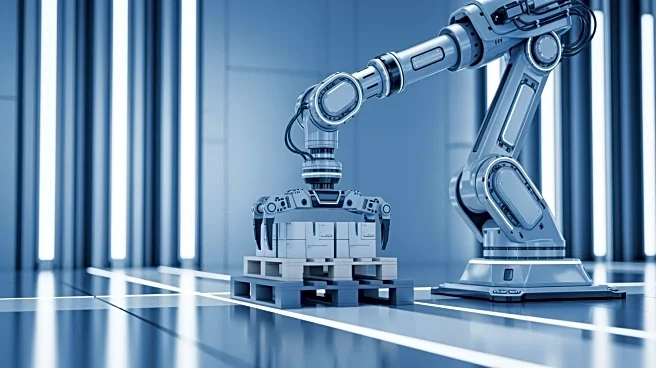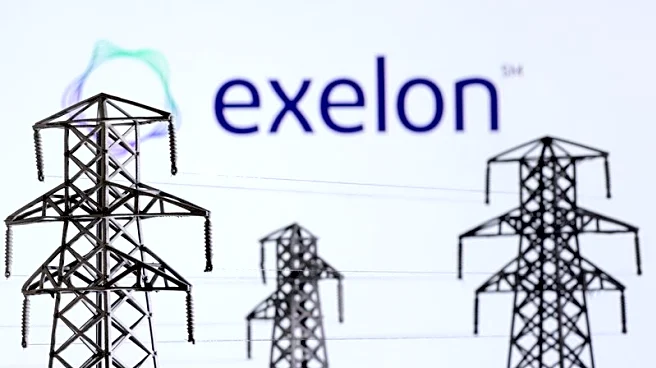What's Happening?
As industrial sites increasingly adopt robotics and automation technologies, the role of forklift operators is undergoing significant transformation. Companies like All Lift Forklifts, Toyota Material
Handling, Crown Equipment Corporation, and Hyster-Yale Group are leading efforts to upskill operators to work alongside autonomous systems. These companies are integrating advanced technologies such as telematics, AI-supported decision tools, and semi-autonomous features into their equipment, requiring operators to develop new competencies. Training programs now emphasize hybrid skills, enabling operators to supervise, troubleshoot, and optimize semi-autonomous machines. This shift is reshaping hiring practices and training priorities, positioning operators as essential decision-makers and problem-solvers in automated environments.
Why It's Important?
The upskilling of forklift operators is crucial as automation becomes more prevalent in industrial settings. By equipping operators with the skills to manage and collaborate with robotic systems, companies ensure that human oversight remains integral to operations. This transition not only enhances site efficiency and safety but also preserves jobs by evolving them rather than eliminating them. Operators with blended skills are better positioned to adapt to changing industry demands, making them valuable assets in the workforce. The move towards automation-assisted workflows highlights the importance of human-machine collaboration, where operators provide context and judgment that machines cannot replicate.
What's Next?
As companies continue to integrate robotics into their operations, the demand for skilled operators who can navigate these technologies will grow. Training programs will likely expand to cover more advanced competencies, including data interpretation and system-level understanding. Industry partnerships may increase to facilitate knowledge sharing and best practices in operator upskilling. Stakeholders, including equipment manufacturers and training institutions, will play a key role in shaping the future of the forklift profession, ensuring that operators remain central to industrial workflows. The evolution of these roles may also influence policy discussions around workforce development and automation.
Beyond the Headlines
The integration of robotics in industrial sites raises ethical and cultural considerations regarding the future of work. While automation can enhance efficiency, it also challenges traditional job roles, necessitating a shift in workforce dynamics. The emphasis on upskilling reflects a broader trend towards lifelong learning and adaptability in the face of technological change. Additionally, the collaboration between humans and machines may prompt discussions on the balance between automation and human oversight, particularly in safety-critical environments. As industries navigate these changes, the role of operators will continue to evolve, highlighting the importance of human intuition in technology-driven settings.










